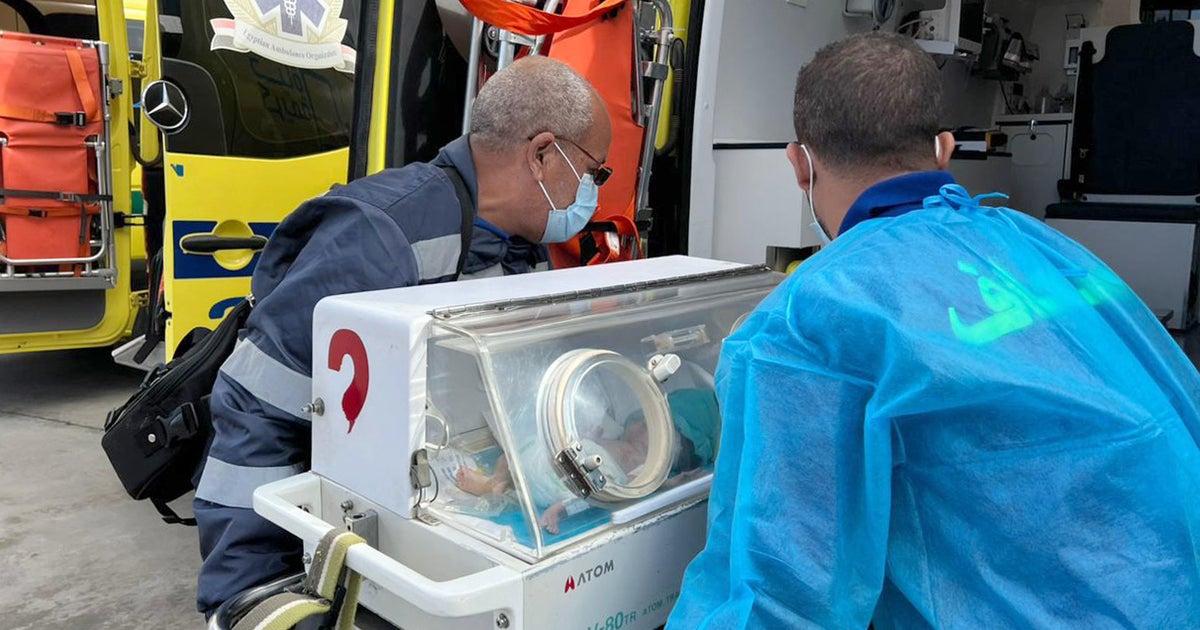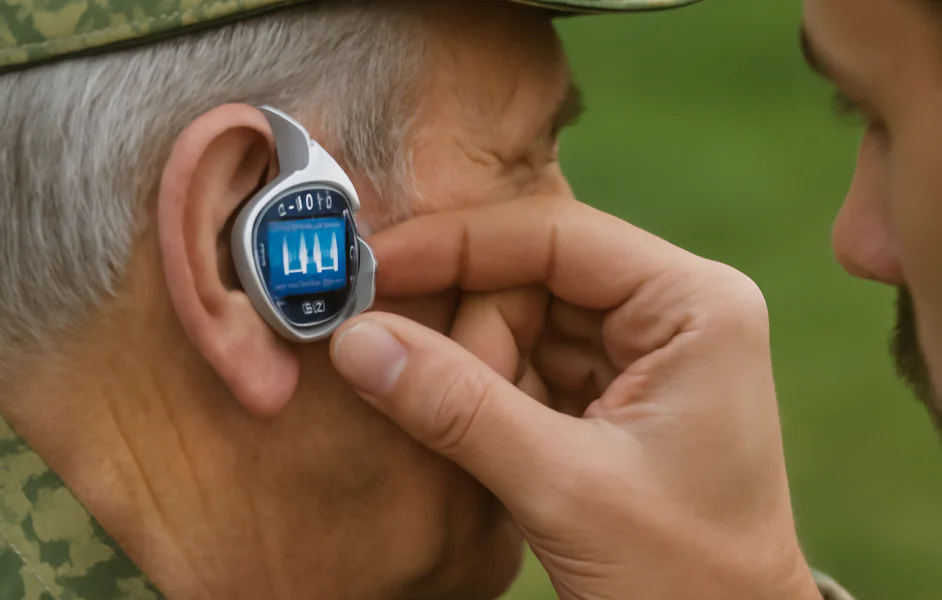Tel Aviv — The Gaza Strip’s Hamas-run Health Ministry says 13,000 people have been killed in the Palestinian territory since Israel launched its military campaign against Hamas in response to the group’s bloody Oct. 7 terror attack. There were reports Monday morning that Israeli forces were surrounding a hospital in the decimated northern half of the enclave amid airstrikes in the area, with the health ministry saying almost 3,000 people were sheltering inside the facility.
The health ministry said an Israeli shell struck the second floor of the hospital, killing at least 12 people, and a medical worker inside the facility, Marwan Abdallah, told the French news agency AFP in a phone interview — with gunfire audible in the background — that Israeli tanks had come within 200 yards of the hospital and military snipers could be seen on top of nearby buildings.
World Health Organization director Tedros Adhanom Ghebreyesus said in a social media post that the WHO was “appalled” by reports of the deadly attack on the Indonesian Hospital, adding: “Health workers and civilians should never have to be exposed to such horror, and especially while inside a hospital.”
STRINGER/REUTERS
A spokesperson for the Hamas-run Health Ministry was quoted by AFP as saying about 600 patients, 200 health care workers and some 2,000 civilians displaced from their homes in the region were sheltering inside the facility.
The IDF did not immediately confirm operations around the Indonesian Hospital, but while the situation there remained unclear, there was finally hope for dozens of premature babies who had been among thousands of civilians trapped inside the Al-Shifa Hospital in Gaza City, in the central part of the territory.
The tiny babies, along with thousands of others, were evacuated from Al-Shifa starting Saturday, several days after Israeli forces moved in on the sprawling hospital compound to secure it and hunt for evidence of the Hamas command center they’ve long said was hidden underneath the facility.
AFP via Getty
Crammed into small battery-powered incubators, the newborn and premature infants were transported Sunday from Gaza City to the southern part of the strip, and Egyptian news outlets said Monday that 29 had been transported through the Rafah border crossing into Egypt for medical treatment. The World Health Organization told the Reuters news agency that 28 babies were transferred to Egypt, but three remained at a maternity hospital in southern Gaza where they were being treated for “serious infections.”
Dr. Mohammad Zaqout, a doctor at Al-Shifa, said eight of the infants brought out of the hospital — which the World Health Organization described as a “death zone” after weeks caught in the middle of the Israel-Hamas war — did not survive the desperate conditions at the facility before they could be transferred.
He said the infants had suffered from symptoms including gastritis and dehydration with vomiting and diarrhea, sepsis due to a lack of medication, and hypothermia as fuel shortages meant the hospital’s incubators could not function in the days before the transfers were facilitated.
Thousands of people have fled Gaza through the Rafah crossing into Egypt since it was first opened for civilian evacuees. The Egyptian government said as of Monday, a total of 6,713 foreign and dual nationals and 929 Egyptians had crossed into Egypt.
Ayman Walash, the director of Egypt’s Foreign Press Center, said a total of 1,284 trucks loaded with humanitarian aid, including more than 2,100 tons of medicine and other medical supplies, 238 tons of fuel, 4,668 tons of food, 4,260 tons of water and more than 1,000 tons of other relief material had gone through the Rafah crossing since it was first opened on Oct. 21.
Among those escaping Gaza into Egypt were “between 50 and 100” U.S. nationals and their dependents, “depending on the day,” according to Michael Triozzi, an American consular officer with the U.S. Embassy in Cairo.
Ahmad Salem/Bloomberg via Getty
“This continues to be a very complicated and serious situation for everybody involved,” Triozzi told CBS News on the Egyptian side of the border, adding that the U.S. government was “deeply grateful to our partners in the Egyptian government and the Israeli government for all they’ve done to help us get the American citizens through the border crossing.”
He said the American nationals who leave Gaza were being bussed to Cairo, where the U.S. consular team stood “ready to receive them and help with any further conflicts or services that they need.”
Israel offers more evidence of alleged Hamas base at Al-Shifa
The Israel Defense Forces (IDF), backed up by the U.S. government, had long said that Al-Shifa, Gaza’s largest hospital, was being used as a command center by Hamas — an assertion the group denied despite a history of positioning weapons and fighters amid civilian infrastructure.
On Sunday, the IDF released more video as evidence of the alleged base under Al-Shifa, including images of a “fortified tunnel” that it said ran 180 feet underneath the complex at a depth of more than 30 feet.
The military also released a new video clip from a security camera at Al-Shifa that it said shows Hamas militants forcing two hostages into the hospital on Oct. 7. The whereabouts of those two individuals remained unknown Monday.
Israeli forces last week showed several journalists, including a CBS News team, weapons it said were found inside the hospital and an image of what it said was the entrance to a Hamas tunnel on the grounds.
The IDF also shared new details Monday about the death of one of its own: 19-year-old soldier Noa Marciano, who was found dead Friday near Al-Shifa after being taken hostage by Hamas during its Oct. 7 terror blitz across southern Israel.
“Hamas murdered Noa inside Shifa Hospital,” senior IDF spokesperson Daniel Hagari said over the weekend.
IDF handout
Forty-five days since Hamas — long designated a terror group by Israel, the U.S. and most of Europe — drew Israel’s blistering military response by killing some 1,200 people with its surprise attack, thousands of Palestinians, including injured and critically ill patients, were still trying to flee to southern Gaza Monday by whatever means they can.
Paghad Abu Assy, 11, was among those who have made the journey. She said half her friends had been killed, but she still dreamed of a future when, “the war will end, and I can become a doctor and finish my education.”
Credit: Source link










































